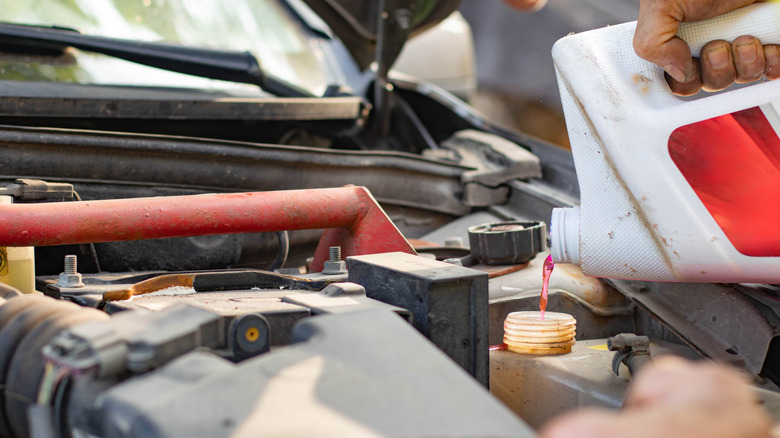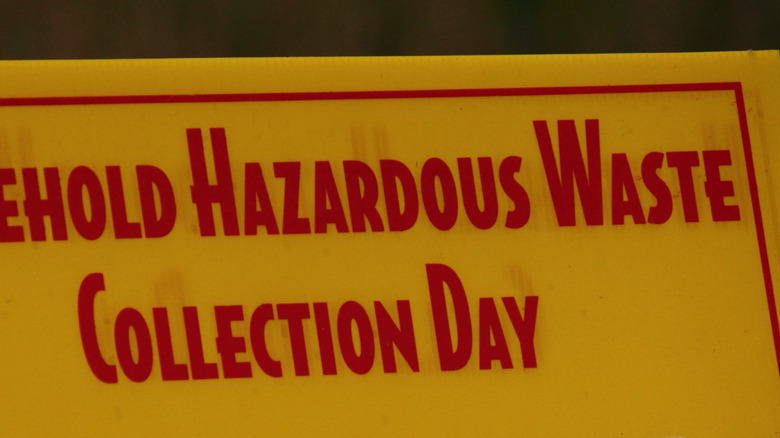How To Dispose Of Old Antifreeze (The Safe Way)
Even if you're not a mechanic or a gearhead, you've probably heard of antifreeze. This chemical helps control the temperature of your engine and protects it from extreme heat and cold. It also contains additives that help prevent corrosion and rust inside your engine. This service is often done at quick-lube locations, local repair shops, or your dealership. Most automakers advise changing out your antifreeze every two to three years, so if you want to save a few dollars, it can be done at home (though the process is more complicated if your car was made after the year 2000).
If you have the skills and tools necessary to change out your antifreeze, you should also learn how to dispose of it in the proper way. Antifreeze contains dangerous chemicals that are harmful to the environment and also toxic to people and animals, both wildlife and your pets, if stored or disposed of improperly.
There are two common types of antifreeze. Ethylene glycol antifreeze is quite toxic. Propylene glycol antifreeze is less toxic and is more common in modern vehicles. You may be able to tell which type was in your vehicle by the color: ethylene glycol antifreeze is often green or yellow, while propylene glycol antifreeze is typically orange or pink. Both types must either be recycled or disposed of at a hazardous waste facility. It should never be put in the garbage, poured into soil, or even dumped down a drain.
Recycle or disposal?
Cars need antifreeze year-round, and whether you're a mechanic or an at-home maintenance whiz, once the job is done you'll have to decide what to do with the old antifreeze you're drained from your vehicle. First, be sure it's stored safely and ready for transport once you've located an appropriate site for disposal. The container should be in good condition, well-labeled with the contents and the date, and sealed completely. Do not mix antifreeze with other automotive fluids, such as engine oil, which can make it much more difficult to recycle or dispose of properly.
Once the antifreeze is safely stored, you can either recycle it or dispose of it. You may be able to find a local body shop or service center that offers recycling services, and often your municipality can help. Recycling removes contaminants and allows the antifreeze to be reused. If you can't find a recycling location, locate a hazardous waste disposal facility or check for local events that collect hazardous materials like paint and antifreeze.
It may feel like a bit of a hassle to discard or recycle used antifreeze, but the consequences for improper disposal can be severe, and its disposal is regulated by the Environmental Protection Agency (EPA). If you throw it in the garbage or pour it down a sewer or a drain, not only are you harming the environment and risking the health of both humans and animals, you could face fines and additional legal action.

